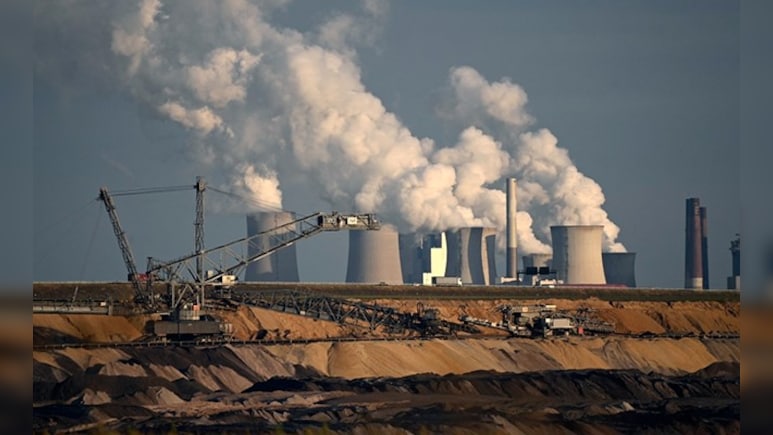
India does not need any new coal power plant beyond those already under construction to meet its electricity demand by 2032, according to a recent study.
The report published on Tuesday by a global energy think tank, Ember, warned that adding more coal capacity would be uneconomical and could burden power distribution companies and consumers with higher tariffs as renewable energy and storage become cheaper and more reliable.
The analysis, titled "Coal's Diminishing Role in India's Electricity Transition", said India can meet its 2032 power needs through solar, wind and energy storage targets already set under the National Electricity Plan (NEP) 2032.
Ember's modelling showed that if these renewable and storage targets are met, about 10 per cent of additional coal units will remain completely unused by 2031-32, while nearly a quarter of the fleet will be heavily underutilised.
"India's power system is entering a new phase of transition. As renewables gain a bigger share of the country's generation mix and storage becomes cheaper, coal's role diminishes. Building coal beyond the current pipeline is neither necessary nor economical for the country," said Neshwin Rodrigues, Senior Energy Analyst - Asia at Ember.
The report found that the average utilisation of India's coal plants, known as plant load factor (PLF), will fall to 55 per cent in 2031-32 from 69 per cent in 2024-25.
This means that many plants will run at lower capacity or stay idle for long periods as solar and wind power increasingly take over during the day.
Coal will have to shift from being the main source of electricity to a flexible backup that fills in when renewables are not generating power. The reduced usage will make coal power more expensive.
As the same fixed costs are spread over fewer operating hours, the effective tariff of coal-based electricity is expected to rise by about 25 per cent by 2031-32, the study said.
Ember estimated that coal power costing Rs 6 per unit today could rise to Rs 7.25 per unit for electricity distribution companies (DISCOMs) once lower utilisation and operating costs are factored in.
Already, coal power has become costlier than many renewable options.
The report said that recently discovered tariffs for new coal projects are above Rs 6 per unit in Bihar and around Rs 5.85 in Madhya Pradesh, even though both are close to coal-producing regions.
Much of this increase is due to high fixed costs that remain payable even when plants are not generating electricity.
In contrast, firm and dispatchable renewable energy (FDRE), which combines renewable sources like solar or wind with battery storage, is becoming a cheaper and more reliable option.
The report said FDRE tariffs now range between Rs 4.3 and Rs 5.8 per unit, while solar-plus-storage projects have reached as low as Rs 2.9 to Rs 3.6 per unit.
"Already, India's auctions are incorporating more hours of battery, and ultimately, batteries will work with solar to make 24/365 electricity.
"There's no reason why India can't copy its success from solar manufacturing to become self-sufficient in battery manufacturing and so energising India with home-grown solar and battery," said Dave Jones, Ember's chief analyst.
The study also highlighted that batteries have evolved rapidly, with lifetimes now stretching over decades and newer sodium-ion technology eliminating the need for critical minerals.
Ember's co-author Duttatreya Das said India must avoid repeating earlier mistakes of overbuilding coal capacity.
"Having learned from past coal overbuild, India must avoid repeating old mistakes amid a rapidly changing energy landscape. Renewables with storage now clearly stand out as the more prudent investment choice," he said.
The report recommended focusing on accelerating storage deployment, retrofitting existing thermal plants to make them more flexible and strengthening power dispatch and reserve systems to integrate renewable energy at the lowest cost.
It said that India's next phase of power planning should prioritise flexibility and reliability through renewable energy and storage rather than new coal builds, which would only lock the country into costlier, underused assets. PTI GVS SHS GVS SHS RT RT
Track Latest News Live on NDTV.com and get news updates from India and around the world

